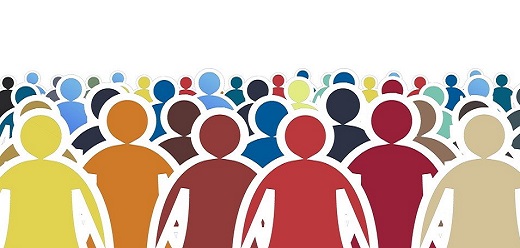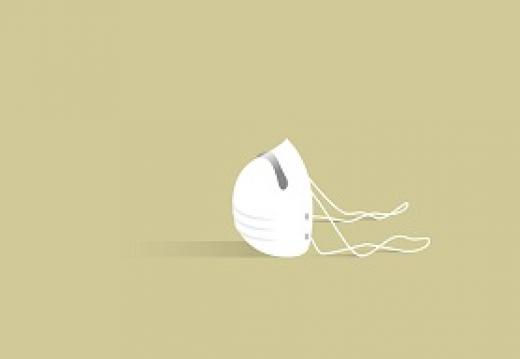
What the Humanities Can Contribute to Covid-19 Research
Without humanities research, any investigation of Covid-19, any attempt to understand the crisis and how it has played out, to learn from it and plan for the future, will be incomplete and inadequate. Alongside inquiries in the sciences, healthcare, economics and social sciences, the humanities represent a crucial resource. Neglect of the contribution humanities disciplines can make will undermine our collective capacity to respond to the unique challenge posed by the virus.
Let’s begin with the obvious: we have an obligation to write the history of the pandemic. The historical dimension is local, regional, and national; it is also necessarily comparative and transnational. The situation is unfolding and we do not know when, if and how it will end; nonetheless, we can start the process in two ways – first, crucially, by conducting oral histories (broadly defined).[1] They can and must take place in the moment as a record of an evolving relationship to the crisis. We need to engage actively with many constituencies to make this happen – from “frontline” healthcare workers in hospitals and homes, to those in support services, like shop workers, delivery people, warehouse workers, cleaners, police, and others whose efforts have made it possible for the society to continue under extreme duress. But the opportunity extends to all of us as witnesses and participants – as people affected by loss, unemployment, crisis response, as home-schoolers, carers, as citizens. The history should include not simply oral testimony but the visual record of lock-down and the vast array of contributions across multiple platforms. The stories that emerge will be intimate and individual, but we can also bring resources of big data analysis to bear on this corpus of material.
The second, related task is to archive the pandemic in order to make possible an eventual history of Covid-19 and its articulations.
We have much to learn, at the same time, by re-examining the history of previous pandemics, not just the devastating flu of 1918–19, but MERS, SARS, the Hong Kong H3N2 flu that killed over a million people in 1968–69, AIDS and HIV, and other experiences of infectious disease over the last century. In earlier centuries, episodes of plague outbreak remain relevant and instructive, such as the lethal Great Plague of London 1665–66. I would argue that Daniel Defoe’s Journal of the Plague Year would have provided public health officials with a valuable guide to how events would unfold in the current crisis. Everything is there: reports of people fleeing to country estates; the difficulty of enforcing lockdown; mass graves; social distrust; magical cures; questioning of statistics and under-reported death tolls; and the heroism of local authorities and those we now call carers.
Defoe’s work reminds us that the experience of plague is caught in webs of narrative. The Humanities have powerful insights to offer us. How have stories of coronavirus been told in the pandemic? The explosion of news coverage and consumption is only partly geared around information (daily death tolls, infection rates, hospitalisations, etc.). It is equally about human interest stories – tales of suffering, loss, sacrifice, grief, endurance, as well as protest and conflict. None of us stands outside these narratives. The language of the pandemic itself deserves closer attention. When politicians, for instance, have sought to convey their response and the gravity of the situation they have had recourse, often, to metaphor – describing the moment as one of war against a difficult enemy. We need a critical sensibility to trace the purpose and impact of these tropes in public consciousness.

Patterns of communication more generally require consideration. Coronavirus is the first pandemic to take place in the era of social media. How have platforms like Twitter, Facebook, Instagram, and others, circulated news, information, rumour, generating comment, commentary and calls for regulation? How have ‘trusted’ news sources contributed to public discussion?
The ability of Humanities researchers to offer insight into these question extends to an evaluation of the importance of information, truth and trust during the pandemic. The limits of statistical data have become apparent (as Defoe long ago recognised), with graphs and charts providing a representation rather reality. Rhetorics of reassurance and competence are at the heart of government self-presentation almost everywhere, but our capacity to assess these claims depends on an awareness of the techniques used to create the impression. In the midst of the crisis, expertise has re-established itself, as we seek confidence in public officials and the advice they rely on. We need research on how expertise was undermined, why it matters now and how to embed and cultivate it in the future.
Researchers in the social sciences have traditions and methods to tackle important aspects of the political dimension of the crisis, but the humanities can contribute to this area of concern in valuable ways – in part by recognising that the foundation of much of what has taken place resides in what can be described as differences of political culture and tradition. Messaging designed to instil a sense of a social collective (“We are all in this together”) has not concealed vast disparities in the effects of the disease, in death rates, socio-economic impact, and access to the means needed to mitigate the crisis. The poison of racism has appeared in new contexts and new ways. Our preparedness would have been much different had lessons been learned from the Global South where infectious disease is a common experience. The fact that Ebola’s effects were felt largely in West Africa meant that a devastating epidemic occurred without wider recognition of the shared significance. We have witnessed gross inequities facing migrants held in camps and detention centres, as well as prison populations. These are matters of the deepest human concern and our answer to them is not confined to social science.
The domain of values and philosophy comes into play at every turn. An immediate issue is the ethics of apps designed to track and trace, and the implications of information gathering, surveillance, and retention of data. Technological solutionism has been rampant – a careful evaluation of the merits, limitations, and promises behind it is essential. Meanwhile, a great deal of public debate has been framed around a series of invidious trade-offs – the needs of the economy vs human casualties of the pandemic; the young vs the elderly; the healthy vs those with “underlying conditions”; the interests of the rural vs urban. Philosophy is a vital resource in examining these oppositions and assumptions. At the same time, we have seen a new valorisation of those in service roles, often in low-paid or precarious positions, suggesting a change of mentality in the order of priorities, but will it last? Reconnections with nature have taken on additional meaning in the midst of social isolation. Philosophy is also needed to help us interpret what it means when politicians say they are “following the science”, as if science rendered a single answer to the questions posed of it. Perhaps the most fundamental philosophical question raised by this extraordinary moment is whether we want to return to the way that life was lived before, and if so on what terms.
Throughout the crisis, the arts have represented a vital resource, proliferating in online contributions, and in reading, viewing, and listening habits. Thus far, limited analysis of the phenomenon has been provided. Distraction during a time of trauma and uncertainty may be part of the story, but there is also an emotional connection, a curative dimension associated with well-being, together with the need for imaginative expression to process a profound and unsettling experience. In that sense, the arts represent the meaning-making territory of the culture.
What of that wider field, the culture as a whole? Here too there are areas to investigate, from sports nostalgia to the role of celebrity in the crisis, to virtualisation as an experience and outcome, to social distancing as burden and as opportunity, to mental health, to anthropologies of ritual associated with honouring carers, practices of grieving, the reshaping of public and private space….The list goes on.
My appeal for attention to these matters by humanities researchers is meant to ensure that we enfranchise the disciplines to address an all-of-society problem. By strengthening our awareness of these key considerations we can join forces with medicine, science, economics, and social science, as partners and participants in a wider discussion and intervention. We should do so with confidence, not apology or special-pleading, with the conviction that the future needs this kind of understanding.
[1] DCU has launched an Irish oral history project https://covid19oralhistory.ie/; for a project in Luxembourg, see https://www.covidmemory.lu/.


